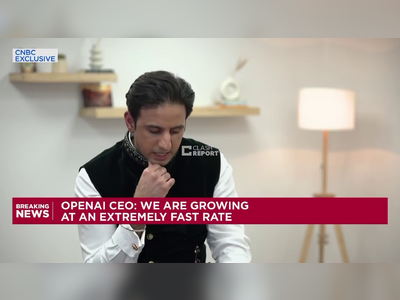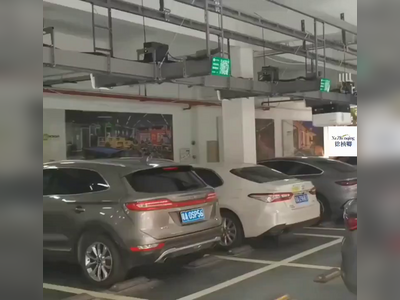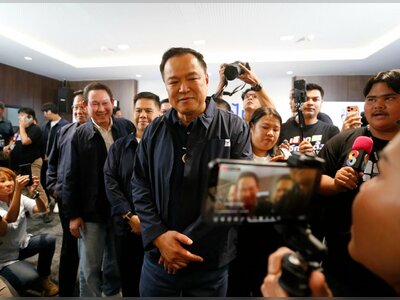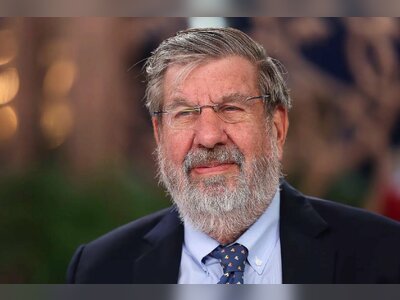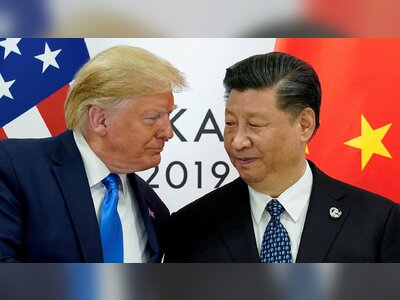AI-Driven Disinformation in SE Asia: The Urgent Need for Fact-Checking and Media Literacy
A study by Safer Internet Lab, an initiative by CSIS and Google, highlights the need for fact-checking and media literacy in Southeast Asia as disinformation, fueled by advanced technology and artificial intelligence, continues to spread.
The report found that while governments have made efforts to address disinformation, a multi-faceted approach is necessary.
The study provided examples of coordinated disinformation campaigns in Indonesia and neighboring countries.
The text discusses the role of social media in the dissemination of fake news in Southeast Asia, specifically during elections.
Paid political influencers, or "buzzers" in Indonesia, and "trolls" in the Philippines, use platforms like Facebook, X, and TikTok to spread disinformation.
The problem has worsened with the use of AI, including deepfakes, which can create computer-generated videos that resemble real people.
The report cites an example of a hyper-realistic Mandarin-speaking video of Indonesian President Joko "Jokowi" Widodo that went viral in late 2023 before being debunked as an AI edit.
A defense minister in Indonesia, Prabowo Subianto, had a manipulated Arabic speech video circulated on social media.
The Communications and Information Ministry reported an increase in disinformation, with 714 hoaxes identified between 2018 and 2019.
However, the number decreased during the recent elections, with only 204 hoaxes found.
The ministry noted that the forms of disinformation have become more diverse and difficult to identify, with the use of AI becoming more common.
Singapore faced a similar issue last year when a deep-faked video of its Prime Minister Lee Hsien Loong promoting a cryptocurrency scheme went viral.
The study emphasizes the need for a multi-faceted approach to combat disinformation in Southeast Asia, recommending policies such as media literacy promotion and legal measures for governments.
Digital platforms are encouraged to enhance fact-checking abilities and collaborate with external parties.
While fact-checking organizations have emerged in some countries, the study stresses the importance of making fact-checking sustainable as technology advances.
The effectiveness of fact-checking and the accountability of fact-checkers are important questions that need addressing, especially in the context of increasing disinformation in Southeast Asian countries.
The report highlights the urgency of media literacy, particularly in low- and middle-income countries where education and literacy levels are lower.
Disinformation knows no borders, and collaborative efforts between Southeast Asian countries are necessary to combat it.
Malaysia is one example of a country taking action, with the help of their communications commission, to strengthen fact-checking, digital literacy programs, and content supervision.
In 2023, the Philippine government will include media and information literacy as a required subject in the primary and secondary school curriculum.
The study provided examples of coordinated disinformation campaigns in Indonesia and neighboring countries.
The text discusses the role of social media in the dissemination of fake news in Southeast Asia, specifically during elections.
Paid political influencers, or "buzzers" in Indonesia, and "trolls" in the Philippines, use platforms like Facebook, X, and TikTok to spread disinformation.
The problem has worsened with the use of AI, including deepfakes, which can create computer-generated videos that resemble real people.
The report cites an example of a hyper-realistic Mandarin-speaking video of Indonesian President Joko "Jokowi" Widodo that went viral in late 2023 before being debunked as an AI edit.
A defense minister in Indonesia, Prabowo Subianto, had a manipulated Arabic speech video circulated on social media.
The Communications and Information Ministry reported an increase in disinformation, with 714 hoaxes identified between 2018 and 2019.
However, the number decreased during the recent elections, with only 204 hoaxes found.
The ministry noted that the forms of disinformation have become more diverse and difficult to identify, with the use of AI becoming more common.
Singapore faced a similar issue last year when a deep-faked video of its Prime Minister Lee Hsien Loong promoting a cryptocurrency scheme went viral.
The study emphasizes the need for a multi-faceted approach to combat disinformation in Southeast Asia, recommending policies such as media literacy promotion and legal measures for governments.
Digital platforms are encouraged to enhance fact-checking abilities and collaborate with external parties.
While fact-checking organizations have emerged in some countries, the study stresses the importance of making fact-checking sustainable as technology advances.
The effectiveness of fact-checking and the accountability of fact-checkers are important questions that need addressing, especially in the context of increasing disinformation in Southeast Asian countries.
The report highlights the urgency of media literacy, particularly in low- and middle-income countries where education and literacy levels are lower.
Disinformation knows no borders, and collaborative efforts between Southeast Asian countries are necessary to combat it.
Malaysia is one example of a country taking action, with the help of their communications commission, to strengthen fact-checking, digital literacy programs, and content supervision.
In 2023, the Philippine government will include media and information literacy as a required subject in the primary and secondary school curriculum.


